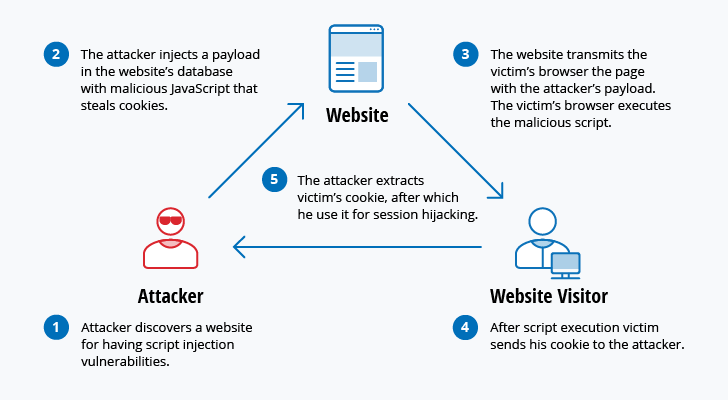- Home
- What Python Certifications Will Be Good for Your IT Career?

What Python Certifications Will Be Good for Your IT Career?
When you perform a quick search for the Python certifications, you will not find much. Does this mean these certificates are not worth your time and attention? Or does it mean that they are gems among stones that are sought after by the employers but are not mainstream enough to appear in the IT certification spotlight?
A certification is basically a no-brainer for most careers in the IT sector. The hiring managers tend to shortlist the certified candidates. But the credentials for the programmers are somewhat a grey area. There has been a long debate on whether programing competency is accurately measured by a certification test or not. As for us, our take in this debate is that any programming certificate actually proves engagement with a particular language. Actually, it is a very big improvement over the old-school tactic of padding one’s resume with the broad list of programming languages that an individual might have the passing interest in.
There are many credentials available for the Python developers. But before pursuing any of it, it’s advisable that you find out whether they are worth your effort and time or not. We intend to help you find out today. Just read on. We have highlighted what is out there with the aim of helping you decide whether a Python certification may be good for your career or not. Let’s begin with the certificates you may get.
- Certified Entry-Level Python Programmer – PCEP
This credential is the starting point to Python, and it is meant for the newbies. Having prior programming experience is optional. To successfully take the PCEP test, you should have the knowledge of procedural programming concepts. You should also have an in-depth understanding of some Python specifics such as a runtime environment and a language syntax. Here is the general breakdown of the exam objectives:
– Data Types, Basic I/O Operations, and Evaluations – 20%;
– Basic Concepts – 17%;
– Functions – 20%;
– Data Collections: Dictionaries, Lists, and Tuples – 23%;
– Flow Control: Conditional Blocks and Loops – 20%.
The cost of the PCEP test is only $59. This makes it illogical for one to explain the reasons for skipping out on this Python certification. However, in case you are planning to earn the additional Python credential later in your career, you should take note that PCEP is not a requirement or a prerequisite for earning any advanced certificates.
- Certified Associate in Python Programming – PCAP
This is a Python certification of the Associate level that builds on the PCEP procedural fundamentals, diving into the object-oriented concepts. It also covers file operations, more advanced comparison operators, and loops. A specialist certified with PCAP will not require any further Python training but will be able to start programming instantly. Therefore, if you are a Python newbie and you have a programming degree, you should start with this level instead of going for PCEP.
The complete breakdown of the exam subjects is as follows:
– Control and Evaluations – 25%;
– Functions and Modules – 25%;
– Exceptions, Classes, and Objects – 25%;
– Data Aggregates – 25%.
The PCAP test costs $295. The cost is worth it because this certification is a requirement for stepping up to the Python professional-level credentials.
- Certified Professional in Python Programming 1 – PCPP-32-1
It is the first of two certs that dives into more precise applications, such as engineering modules and science, programming for the GUI environment. The certification is designed for those people who evolve full apps in the Python setting. If you are an admin and you are solely interested in scripting, then this certificate is definitely what you need. To attempt the PCPP-32-1 exam, you need to have a high level of OOP competency.
The breakdown of the PCPP-32-1 topic areas is as follows:
– File Processing and Communicating using a Program’s Environment – 20%;
– Cutting-Edge Viewpoint of Classes as well as Object-Oriented Programming in Python – 25%;
– Math, Engineering, and Science Tools – 20%;
– Python Enhancement Proposals – 15%;
– GUI Programming – 20%.
Note: to qualify for PCPP-32-1, you must first obtain the PCAP certification.
- Certified Professional in Python Programming 2 – PCPP-32-2
The second certificate envelops the knowledge that are necessary for leadership roles, such as team lead, software engineer, or even DevOps. The main focus here is on deploying and architecting Python applications for an enterprise. Hence, the candidates should have the knowledge and skills to abstract program with design patterns, perform database transactions, create multi-thread optimized software, and establish client-server communication with sockets, as well as create and deploy release packages to tie it all together.
Below are the objectives of the PCPP-32-2 exam:
– Creation and Distribution of Packages – 20%;
– Interprocess Communication – 20%;
– Python-MySQL Database Access – 20%;
– Design Patterns – 20%;
– Python Network Programming – 20%.
PCPP-32-1 is a prerequisite to a Certified Professional in Python Programming 2. Each PCPP test costs $195.
- Certified Expert in Python Programming – CEPP
CEPP is a different credential as it does not require any separate test. To achieve this certification, you are required to obtain PCAP and two PCPP certificates. At this stage, one is considered a ‘Python Master’ who is able to take up any Python role.
Note for Job Seekers
Now you understand what options you have, and we bet you can choose which certificate to pursue. There are factors that will influence your choice. You should include them.
– The Python certifications are not necessary for those individuals who already have an impressively built catalog of code samples. But if you are new to Python, irrespective of whether you have already programmed in other languages or not, a certificate of this vendor is a great demonstration of your dedication.
– Career track. Python is among the few languages that are known to appeal to a larger audience. If there is one amazing tool for an IT administrator, then it is Python. So, PCAP or PCEP demonstrates that you are proficient with process automation using the scripts.
Conclusion
The main point here is that a programming certification is not that important when it is used as an addition to the experience you already have. But it is the best substitute for it. If you are a veteran programmer for any language, then you should begin with PCAP, and it may be enough. If you have less programming experience, then you should begin with PCEP and proceed to other advanced certificates.
Popular posts
Recent Posts
- Certified in Risk and Information Systems Control (CRISC): Exam and Salary Analysis
- Certified Kubernetes Administrator (CKA) vs. Certified Kubernetes Application Developer (CKAD): Which Path to Choose?
- Machine Learning and Big Data Analytics: New Content in the Microsoft Certified: Azure AI Engineer Associate Exam
- The New PMP Certification: What’s Changed in PMI’s Approach to Project Management in IT?
- The Impact of AI and Automation on IT Certifications: New Topics Emerging in 2024 Exams











